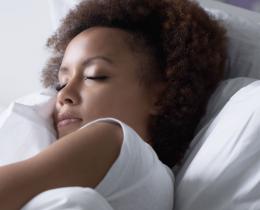Some women hardly notice the changes that come along with menopause. Other women experience the changes as uncomfortable or even unbearable.
Either way, studies show that women can benefit from the ancient wisdom of qigong, a form of meditative movement that originated in China and helps balance and cultivate qi, or energy, within the body.
Symptoms & Traditional Treatment
The symptoms of menopause are varied. Hormonal shifts in the endocrine system can cause sleep problems, vaginal and urinary tract changes, and emotional swings that plague some menopausal women, according to the National Institute on Aging. Hot flashes and night sweats affect 75 percent of women, according to Johns Hopkins Medicine. The Journal of the North American Menopause Society reports that bone density changes, like osteoporosis, have been attributed to the drop in estrogen levels that occurs during menopause.
Hormone replacement therapy is one of the main treatments offered by modern medicine to counteract these ailments. Menus of products include pills, gels, creams, patches, and rings, among others. However, for some women, the side effects, which include bloating, breast tenderness, headaches, mood changes, and nausea, might outweigh the benefits, according to research from the National Institutes of Health.
According to the National Center for Complementary and Integrative Health, a division of the National Institutes of Health, “mind and body practices such as yoga, tai chi, qigong, and acupuncture may help reduce the severity of menopausal symptoms, including the frequency and intensity of hot flashes, sleep and mood disturbances, stress, and muscle and joint pain.”
Ancient Wisdom to Supplement Modern Medicine
Deborah Davis, an acupuncturist and specialist in women's medical qigong, is one of many practitioners offering such alternatives to women. Through her workshops and programs, Davis teaches qigong as a way to move the body into balance. According to Davis, qigong can help menopausal women balance hormone, stress, and energy levels.
“The reemergence of qigong’s ancient healing methods is particularly relevant for women, since Western medicine has no protocols for maintaining agility and grace as we age,” Davis writes in Women's Qigong for Health and Longevity. “Conditions such as PMS, menopause, depression, fibromyalgia, and fatigue are most often controlled by pharmaceuticals, but studies now reveal that many of the standard drugs for these imbalances (such as Premarin for menopause) are fraught with deleterious side effects.”
A comprehensive review of the research on qigong and the related practice of tai chi, published in the American Journal of Health Promotion, found "the evidence suggests that a wide range of health benefits accrue in response to these meditative movement forms," including relief from symptoms associated with menopause.
Studies at Harvard Medical School support tai chi, a meditative qigong movement, as an effective way for postmenopausal women to maintain bone density when combined with standard treatment. Research shows that tai chi is not only effective, but perhaps more importantly, it is also safe.
“All diseases, pains, and discomforts are the symptoms of the qi stagnations in some areas of the body and mind,” explains Tina Zhang, author of Earth Qigong for Women, who offers a qigong clinic for women who want to regain a healthy balance within themselves on both a physical and an emotional level. According to Zhang, “Our body knows and wants to heal, all it needs is the opportunity.”
Adding qigong to your self-care routine is a way to use ancient wisdom to supplement modern science. It can also help you learn to be with your body during a time when there's so much going on.
"The basic tenet of qigong," says Davis, "is that our mind and body are not separate, and focusing our mind through concentrated effort can change our internal environment," in turn bringing "vitality and optimum health."



